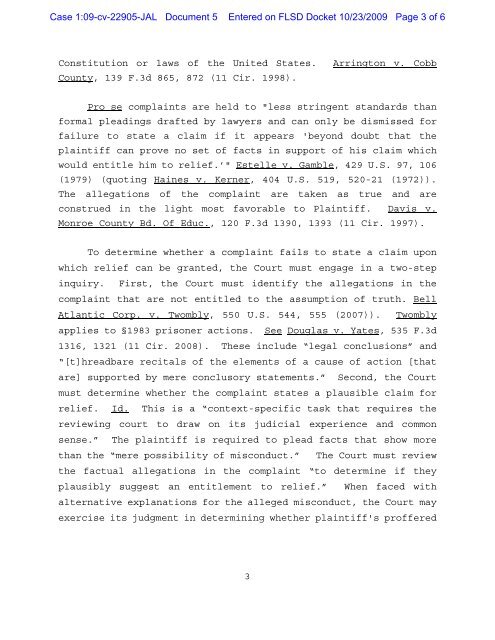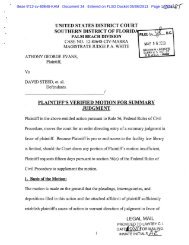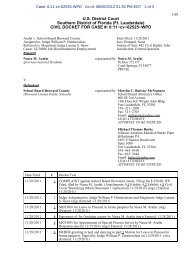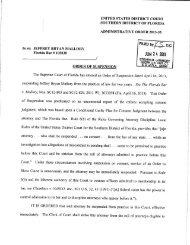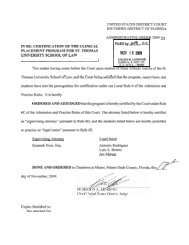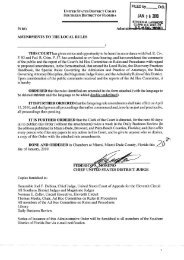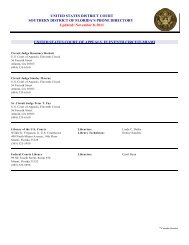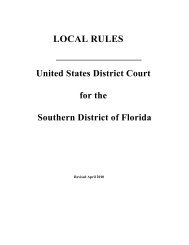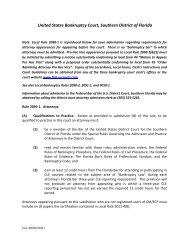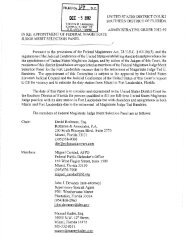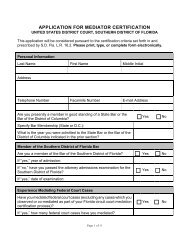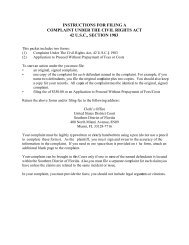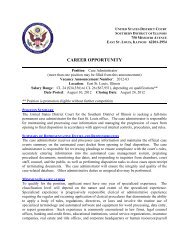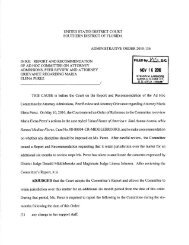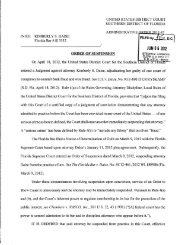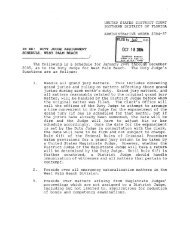US District Court Southern District of Florida (Miami) - United States ...
US District Court Southern District of Florida (Miami) - United States ...
US District Court Southern District of Florida (Miami) - United States ...
Create successful ePaper yourself
Turn your PDF publications into a flip-book with our unique Google optimized e-Paper software.
Case 1:09-cv-22905-JAL Document 5 Entered on FLSD Docket 10/23/2009 Page 3 <strong>of</strong> 6<br />
Constitution or laws <strong>of</strong> the <strong>United</strong> <strong>States</strong>. Arrington v. Cobb<br />
County, 139 F.3d 865, 872 (11 Cir. 1998).<br />
Pro se complaints are held to "less stringent standards than<br />
formal pleadings drafted by lawyers and can only be dismissed for<br />
failure to state a claim if it appears 'beyond doubt that the<br />
plaintiff can prove no set <strong>of</strong> facts in support <strong>of</strong> his claim which<br />
would entitle him to relief.’" Estelle v. Gamble, 429 U.S. 97, 106<br />
(1979) (quoting Haines v. Kerner, 404 U.S. 519, 520-21 (1972)).<br />
The allegations <strong>of</strong> the complaint are taken as true and are<br />
construed in the light most favorable to Plaintiff. Davis v.<br />
Monroe County Bd. Of Educ., 120 F.3d 1390, 1393 (11 Cir. 1997).<br />
To determine whether a complaint fails to state a claim upon<br />
which relief can be granted, the <strong>Court</strong> must engage in a two-step<br />
inquiry. First, the <strong>Court</strong> must identify the allegations in the<br />
complaint that are not entitled to the assumption <strong>of</strong> truth. Bell<br />
Atlantic Corp. v. Twombly, 550 U.S. 544, 555 (2007)). Twombly<br />
applies to §1983 prisoner actions. See Douglas v. Yates, 535 F.3d<br />
1316, 1321 (11 Cir. 2008). These include “legal conclusions” and<br />
“[t]hreadbare recitals <strong>of</strong> the elements <strong>of</strong> a cause <strong>of</strong> action [that<br />
are] supported by mere conclusory statements.” Second, the <strong>Court</strong><br />
must determine whether the complaint states a plausible claim for<br />
relief. Id. This is a “context-specific task that requires the<br />
reviewing court to draw on its judicial experience and common<br />
sense.” The plaintiff is required to plead facts that show more<br />
than the “mere possibility <strong>of</strong> misconduct.” The <strong>Court</strong> must review<br />
the factual allegations in the complaint “to determine if they<br />
plausibly suggest an entitlement to relief.” When faced with<br />
alternative explanations for the alleged misconduct, the <strong>Court</strong> may<br />
exercise its judgment in determining whether plaintiff's pr<strong>of</strong>fered<br />
3


